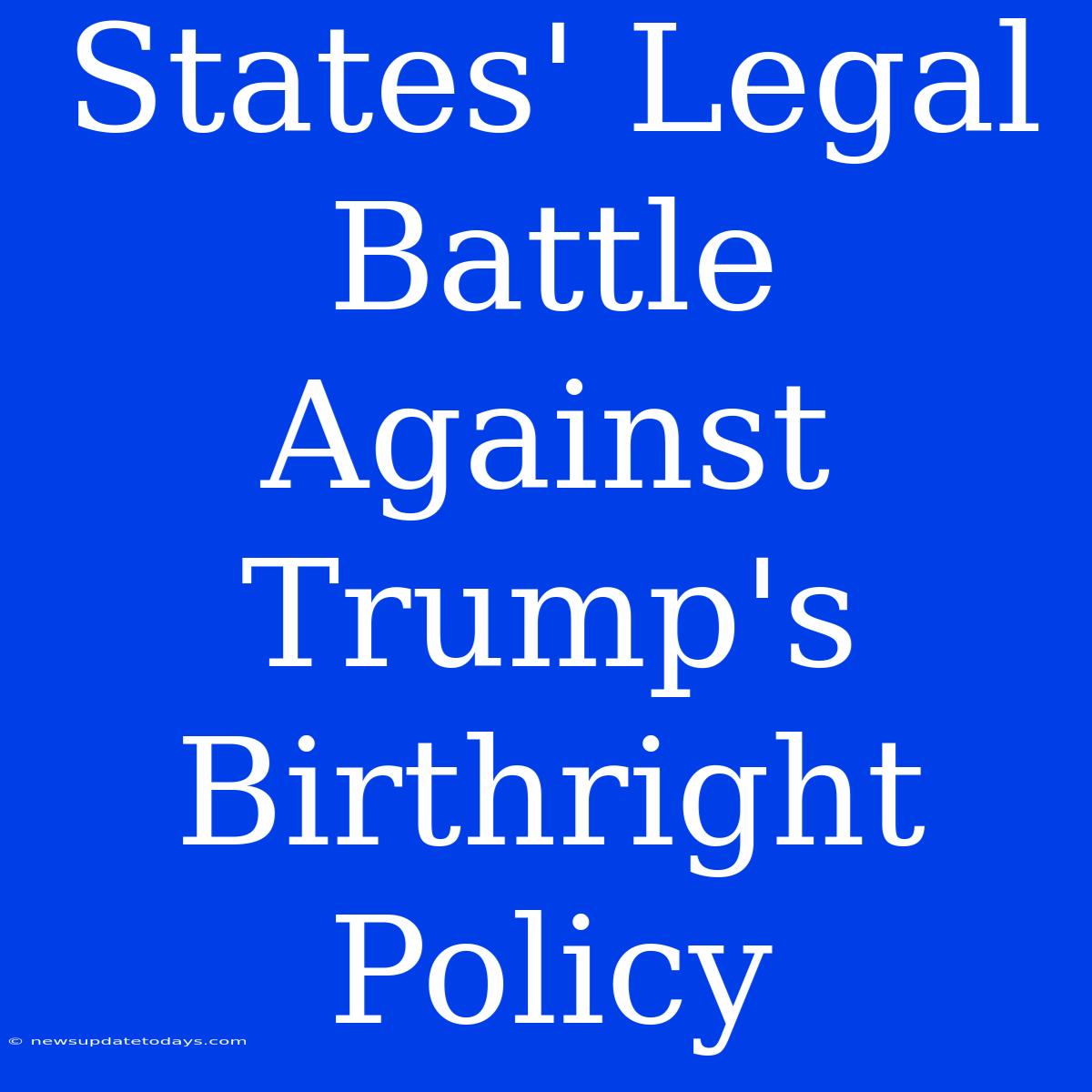States' Legal Battle Against Trump's Birthright Citizenship Policy: A Deep Dive
The Trump administration's attempt to redefine birthright citizenship, enshrined in the 14th Amendment, sparked a significant legal battle with several states. This article delves into the core arguments, the legal challenges faced, and the potential implications of this contentious policy debate.
Understanding the 14th Amendment and Birthright Citizenship
The 14th Amendment to the U.S. Constitution, ratified in 1868, states: "All persons born or naturalized in the United States and subject to its jurisdiction, are citizens of the United States and of the State wherein they reside." This clause has long been interpreted as guaranteeing birthright citizenship – jus soli – meaning citizenship is granted to anyone born within U.S. territory, regardless of their parents' immigration status.
Trump's Proposed Change and the States' Response
Former President Trump's administration sought to reinterpret this clause, arguing that birthright citizenship should only apply to children of citizens or legal residents. This proposed change was met with immediate and strong opposition from numerous states, primarily those with large immigrant populations. These states argued that such a change would be unconstitutional and would have devastating social and economic consequences.
Key Arguments Against Trump's Policy:
-
Constitutional Violation: The core argument against the proposed change centered on its direct contravention of the clearly worded text of the 14th Amendment. Legal scholars and opponents argued that altering the established interpretation would require a constitutional amendment, not executive action.
-
Practical Implications: Opponents highlighted the significant logistical and administrative challenges of implementing such a policy. Determining citizenship based on parental status would require extensive documentation and verification processes, potentially leading to significant delays and errors.
-
Social and Economic Impacts: States argued that limiting birthright citizenship would harm their economies, disproportionately affecting immigrant communities and creating a system of second-class citizens. The potential for discrimination and social unrest was also a major concern.
The Legal Challenges:
Several states filed lawsuits challenging the legality of Trump's proposed policy. These lawsuits focused primarily on the unconstitutionality of reinterpreting the 14th Amendment through executive action. The legal battles involved intricate arguments about constitutional interpretation, federalism, and the limits of presidential power.
The Outcome and Future Implications:
Ultimately, the Trump administration's attempts to alter birthright citizenship through executive action were unsuccessful. The legal challenges mounted by the states, combined with strong opposition from legal scholars and civil rights organizations, effectively stalled the policy. However, the debate highlighted the ongoing tensions surrounding immigration policy and the interpretation of fundamental constitutional rights.
Looking Ahead:
While the immediate threat of altering birthright citizenship through executive action has subsided, the underlying debate continues. The issue remains a contentious one in American politics, with ongoing discussions about immigration reform and the future of birthright citizenship. This ongoing debate underscores the importance of understanding the legal and historical context surrounding this fundamental aspect of American citizenship. The possibility of future legislative attempts to restrict birthright citizenship remains a significant consideration. Understanding the legal battles fought over this issue is crucial to engaging in informed discussions about the future of immigration and citizenship in the United States.

